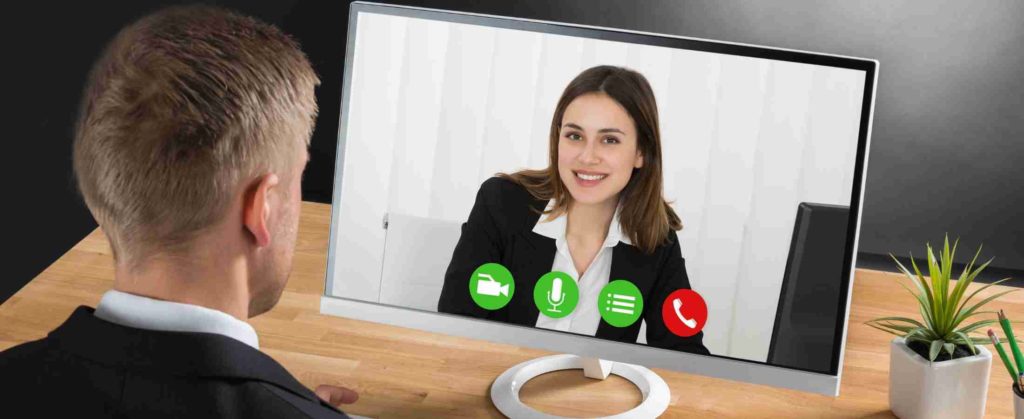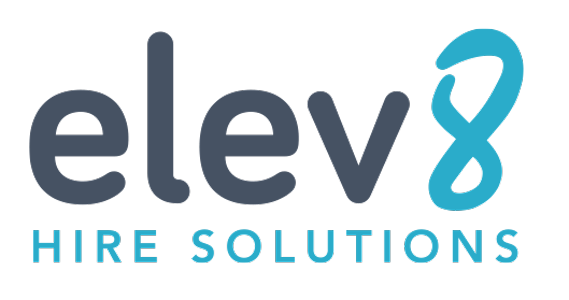
Video Interviewing 101—For Hiring Managers
As the coronavirus pandemic changed the way we interview, we are finding the benefits of video interviews are here to stay.
We have found that not only are our clients benefiting from this due to necessity, but remote interviews offer tremendous long-term benefits. Video screening allows hiring managers to rapidly sort through candidates. Scheduling remotely eliminates much of the overhead of scheduling in-person interviews and speeds up the interview process. Remote interviews allow companies to cast wider nets for skilled roles, making it easier for top talent to consider your open position. It also dovetails nicely for candidate roles that will be remote.
However, the remote interview can also be sterile and confusing for candidates assessing their own fit with your company. It is important to compensate for that by preparing, focusing, and respecting the candidate's time.
Pro Tips: Video Interviewing
Whether you’re new or already familiar with video interviewing, these remote interview best practices can help you optimize your interview process while successfully recruiting the best candidates for the job.
Prepare the interview process
Just because a video interview can be set up quickly, does not forgo the benefits of planning. Architect the interview, or series of interviews to include all key stakeholders necessary to assess the candidate’s skills and attributes. Share the candidate’s resume, the job description and internal feedback process to give interviewers proper time to design questions. Similarly, inform the candidate on who they’ll be interviewing with so they can prepare questions of their own.
Remember, just because you're on a video interview, does not forgo the things you would do on an in-person interview such as a white board exercise, code reviews, demos, or even pair programming. These exercises remain critical best practices to assess technical skills, and our clients have effectively continued to utilize them via video interviews.
Finally, advise the candidate and interviewers alike to check their tech before the interview to make sure they both make a good impression. We recommend having all parties log on 5 minutes prior, ensuring everything is all ready and set to go to ensure a good candidate experience.
Communicate openly
For remote interviews, it is essential to keep candidates well-informed throughout the interview process. Start the interview by setting expectations of what you will cover, and ask them if they have any specific topics to cover. This will help manage the time, and potentially help guide the conversation. Favor live phone calls or include information on next steps during the video interview to replicate a warm, in-person reception virtually. Follow up email instructions provide extra clarity and detailed information, but in a virtual world sharing your voice and face are especially important to show them their time and efforts are valued and to form personal connections.
Remove distractions
Be respectful of the candidates time and be fully present during your video interview. Remove distractions before the interview, including putting your smartphone on Do Not Disturb, and silencing notifications from Slack or email. These behaviors come more naturally in an in-person interview, but are more critical in a virtual one. Focusing on the candidate will help you better assess their fit, and create more of a personal connection to help recruit them to your team.
Allow the candidate time
A video interview often has delays and masks social cues, making it easy to start talking before a candidate is finished speaking. Pause before speaking to ensure the candidate is done with their response before moving onto the next question. Also remember the candidate is not able to see your workplace, so encourage them to compensate by asking questions about the work environment and culture. In fact, our most successful recruiting managers plan for someone to proactively discuss this with them during the interview process—often choosing someone recognized as a peer to the candidate.
Tools for Successful Remote Interviewing
Video conferencing and remote interviews established themselves across tech savvy companies over the past decade. Solutions range from expensive integrated Human Capital Management solutions to leveraging the video conferencing and other digital tools companies already use. Certainly there is a market for a range of solutions.
Large companies hiring large numbers of candidates in similar roles benefit enormously from integrated software platforms purpose built for large scale hiring. Companies like CVS claim they save as many as 40 man years of live interviewing by using independent digital screening and technical assessments, alongside video interviews supported by interviewers. These solutions also typically support a content portal aimed at educating candidates and selling them on the benefits of future employment.
However, at Elev8, our clients are typically hiring for more specialized technology roles that are difficult to standardize in these solutions to reap the same benefit. For instance, most companies do not employ more than 5 data scientists. Product teams only need one product owner, and that product owner must have specific market knowledge. For roles like these, custom, integrated Video Interviewing Software is overkill.
To fill specialized roles, our clients find it essential to turn to specialized IT headhunters. Staffing firms like ours typically cultivate a network of skilled IT workers. At Elev8, we leverage our Talent Evaluation Process™ designed to help match personalities and high level skills to specific roles in companies. This helps us narrow the candidate list. However, clients still need to screen and technically assess the candidates for their open positions—and that is almost never a standardized exercise.
With the exception of our Fortune 2000 clients, most of the companies we work with re-purpose the same video conferencing they use everyday to screen and interview candidates. Typically, this means any potential interviewer is familiar with the technology and can assist the candidate with any technical problems. Plus, it is accessible and affordable—oftentimes, it's even free.
Borrowing from the best practices of the integrated solutions, we do still recommend creating collateral or even a purpose built website or wiki with information on your company. Anything that will help sell your company and educate your candidate offline will help.
These guidelines and tools can help streamline your hiring process, while also compensating for the remoteness of the process. If you follow them, you’ll find that video interviews will be an essential part of your recruiting toolbelt even after the coronavirus restrictions are lifted.
